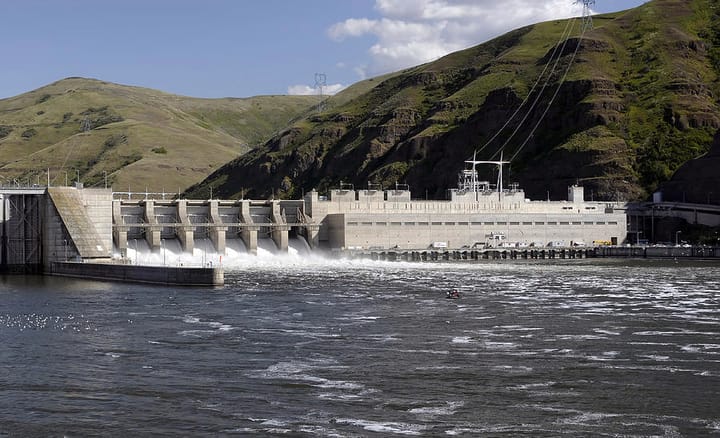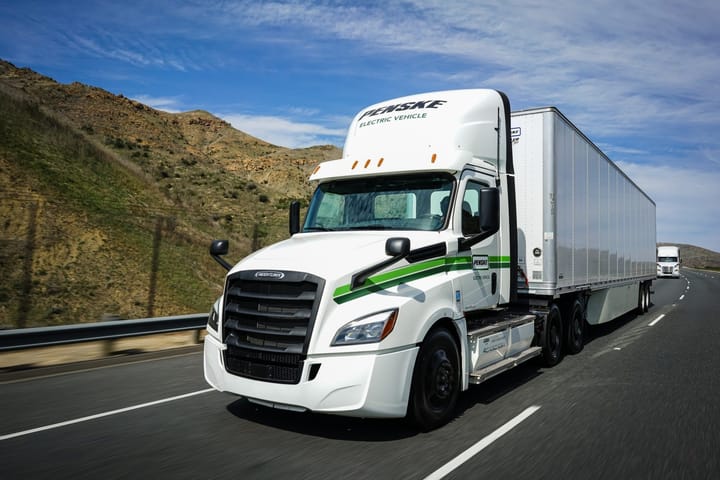What We’re Made Of: The Natural Bonds of WA-5

The Lay of the Land
There are places in this district where the wind holds its breath. Where basalt ridges cast long morning shadows, and wheat fields ripple like a hush across the hills. Where the rivers have cut through everything but memory. It is here in the stillness between logging roads and school bus stops that something takes root, though few of us name it.
We call it land. We call it home. But it’s more than that. It’s the quiet force that keeps us tethered, even when everything else is trying to pull us apart.
Eastern Washington’s natural resources have always been a source of pride: our forests, our rivers, our fertile soil. But it’s the human resource that writes the true story of this place. It’s the people who work the orchards, fight the fires, haul the hay, staff the classrooms, and still make time to wave on a gravel road, or in a coffee shop. In every ZIP code across WA-5, there’s grit, and grace, and some quiet understanding that we’re in this together, whether we admit it or not.
One Place, Many Pasts
This isn’t a call to pretend we’re the same. We aren’t. A third-generation cattle rancher in Asotin County may never vote the same way as a city planner in Spokane. But both know how a wildfire smells. Both know what it means when the water runs low. And both want their kids to inherit something worth staying for.
We’ve been told by headlines, by politics, by algorithms, that we’re enemies. That we should fear and avoid the “other side.” But here’s the truth a divisive party platform can’t erase: the land doesn’t care how you vote, and neither does your neighbor’s well when it runs dry.
What We Share
It’s easy to point to the divides: political, cultural, generational. But beneath them, there’s a quieter truth: we are bound by the same stakes.
We all rely on clean water, whether we think of it as irrigation, tap water, or a sacred river. We all watch the sky in fire season. We all notice when the shelves at the grocery store feel a little emptier or when the neighbor down the road stops answering the door. And no matter our zip code, we all want the same things for our kids, safety, opportunity, and a sense of belonging.
Ask a Walla Walla winemaker, a Pasco farmworker, or a Cheney schoolteacher what they’re worried about, and the answers might sound surprisingly alike: Too much uncertainty. Too little listening. Too few people showing up when it counts.
We may not always agree on the cause. But we do agree on the cost.
The Power of the Table
There’s something sacred about a shared meal in this part of the world.
It might be pozole at Feast World Kitchen in Spokane, salmon grilled over open flame in Nespelem, or potato salad at a volunteer fire hall picnic in Davenport. Wherever it’s served, the table holds more than food, it holds a pause, a chance to ask the questions that usually go unspoken: What brought your family here? What keeps you going? What do you wish people knew about you? What should you seek to know about them?
These conversations don’t fix everything. But they do something even more radical: they remind us we’re more than the boxes we check in November. We’re human beings, sometimes tired, always proud, capable, and forever trying, because that’s what hope requires.
Tending What's Ours
To protect our natural resources: the forests, the rivers, the soil, we have to also protect our human ones. That means refusing to believe that empathy is weakness. That means recognizing that survival in this part of the country has always been about community, not conquest.
It means letting go of the myth that we are too different to build something together.
One Region, One Future
The truth is, we’re already connected. Not by politics, but by power lines and irrigation ditches, by shared schools and roads, by the silence of a dark night in the Palouse or by the wind that stirs wheat fields in Dayton the same way it moves pine needles in Chewelah.
We are co-stewards of this place, and what we do next matters. Whether we bury our heads or break bread. Whether we double down on division or reach our hand, tentatively, across the fence line.
There’s a reason folks still wave when they pass you on a country road. It’s not just habit. It’s a quite kind of hope.

